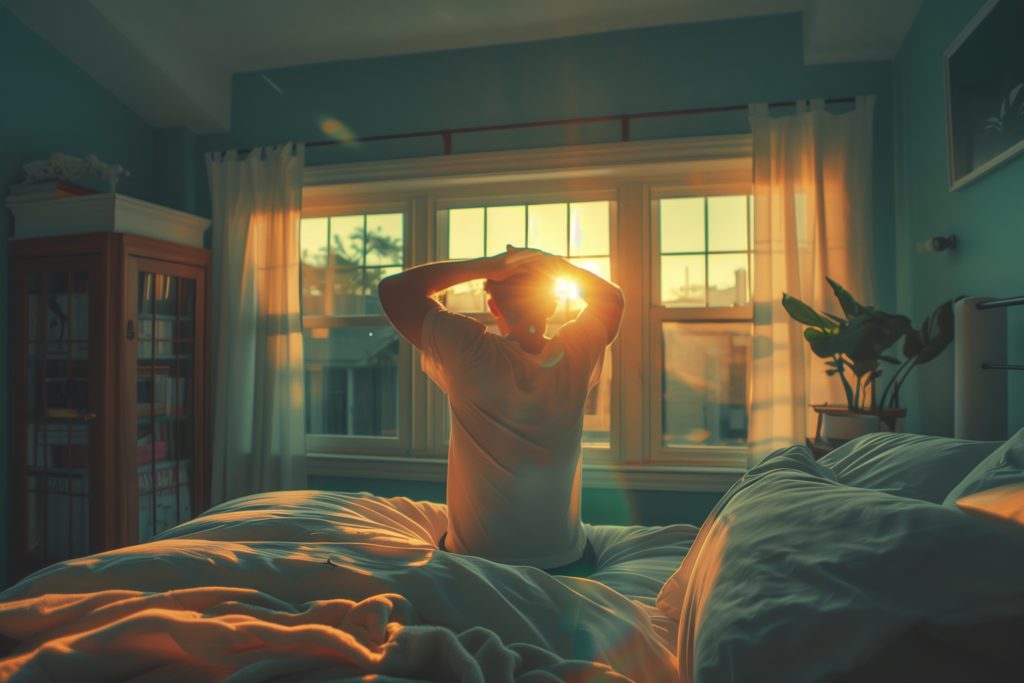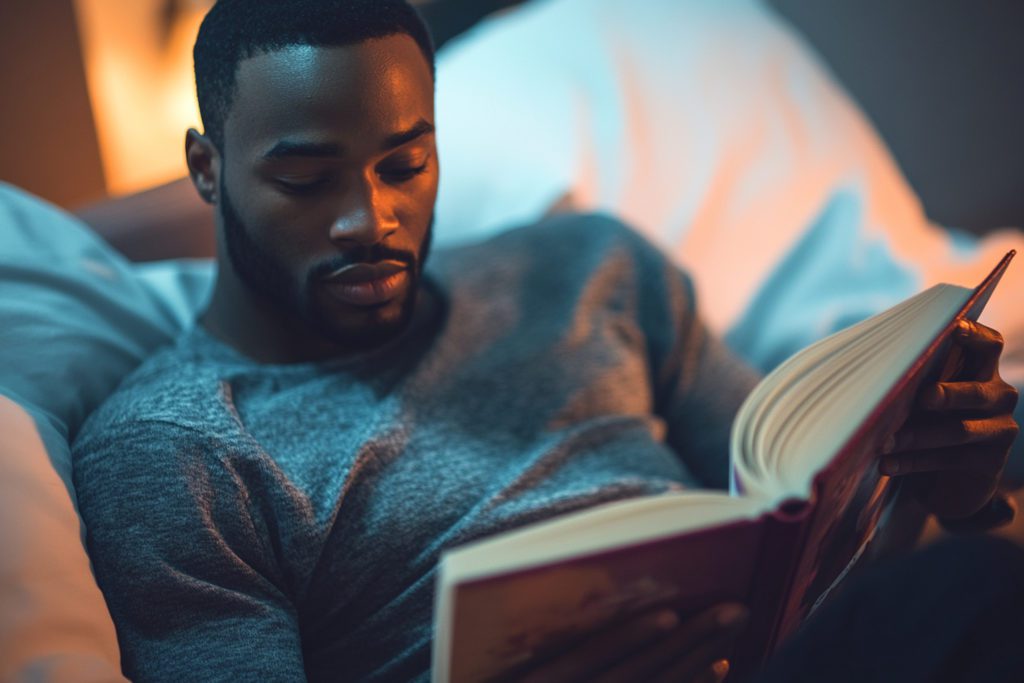
3 Tips to Fall Asleep Faster
Discover three expert tips to fall asleep faster and wake up refreshed. Transform your nights with a relaxing bedtime routine and healthy habits

Do you struggle with falling asleep quickly? You're not alone if you find yourself tossing and turning at night for minutes—sometimes an hour or more—before you finally drift off to sleep. With up to 43% of Americans reporting that they rarely or never get a good night’s rest, getting enough quality rest is clearly an issue many people face. However, if you’re able to encourage your body to fall asleep quickly, you can ensure you get enough sleep.
In this article, we’ll explore three of the most essential tips to help you fall asleep faster. These tips will introduce you to the importance of a consistent sleep schedule, assist you in crafting a relaxing bedtime routine, and aid you in avoiding some detrimental stimuli—like blue light exposure. By the end of this article, you’ll be prepared to make changes so you never feel like you missed out on much-needed shut-eye!
Tip #1: Establish a Consistent Sleep Schedule
This might go without saying, but if you can’t follow a consistent sleep schedule, your body is likely going to struggle to get to bed quickly. If you’re someone who goes to be at varying times, this might be messing with your circadian rhythm. Your circadian rhythm is what helps you stay regular, meaning that it guides your body to wake up and go to bed at roughly the same time each and every day and night.
When you have a regular sleep schedule, you help your body strengthen its circadian rhythm. The more you adhere to your natural daily cycle, the better your rest will ultimately be, and the more likely you are to fall asleep quickly because your body will be used to the schedule (Source: PubMed). That means even waking up and going to bed at the same time on the weekends, which might seem odd, but it is essential to ensure your body sticks to a routine. All of this leads to better health overall, according to multiple scholars.
If you struggle with sticking to a sleep schedule, there are a few things you can do. One, you can take steps to wind down by a specific time. For example, if you want to be in bed by ten, you might begin to wind down by nine. That means taking care of your last chores, avoiding TV and blue light exposure, and relaxing your mind and body for rest. You can use sleep-tracking apps to help you if you’d like to keep a consistent schedule.
To ensure you get up at the same time every day, set an alarm that you find pleasant but also gentle enough to stir you from sleep. Having a loud alarm might be jarring first thing in the morning, so you can opt for something more soothing to help you gently transition from sleeping to being awake. Even if you have differing schedules from time to time—like work commitments, social functions, and more—finding a way to mostly stick to a sleep schedule can make you fall asleep quickly every night!
Tip #2: Create a Relaxing Bedtime Routine
Other than sticking to a schedule, you’ll want to also focus on how you can create a relaxing bedtime routine. It’s not enough just to go to bed and wake up at the same time but to encourage your body to wind down, too. That means engaging in activities that will help you relax. While it might seem like a good idea, screen exposure can hinder your sleep quality and make it harder for you to unwind (Source: Journal of Sleep Research).
Instead, try to engage in other relaxing tasks. Some people enjoy some bedtime yoga, while others might want to read a book, take a relaxing bath, or even put down their phones and shut off the TV for some ample quiet time. These non-pharmacological interventions have been shown to reduce stress and anxiety while also promoting relaxation—even in patients undergoing medical treatment in the ICU (Source: Intensive and Critical Care Nursing). So, try to create your own bedtime routine to see how it impacts your rest!
As long as you find suitable activities that align with your needs, you’ll be able to enjoy better rest and a quicker onset of sleep. The most important thing is that you find a routine that will benefit you. There is no one-size-fits-all solution, but start with one to three things that relax you, then begin to make changes to your bedroom environment to ensure it is comfortable, cool, and primed for ample sleep.
Tip #3: Limit Exposure to Screens Before Bed
We have mentioned this briefly, but screens can be incredibly harmful to your sleep. Not only do many of these screens have blue light, but they can keep your brain active and awake when it should be starting to wind down and rest. While blue light exposure positively helps with your cognitive performance, it can decrease your sleep quality and sleep duration, leading to worse problems in the long term with consistent exposure.
Blue light may be harmful before bed, but in the morning, it has been shown to help with improving one’s sleep quality after mild traumatic brain injuries have occurred. So, it may help you, but this all depends on your health situation. Regardless, do your best to keep away from blue light, and you may even notice a difference in your energy levels after a few days or weeks! If you must use screens, try to find a blue light filter or glasses to help your eyes rest and avoid the negative impact of this type of light exposure.
What Tips Will You Implement in Your Life?
Now that you know three integral tips to help you fall asleep faster, you can take steps to make sure you get enough rest. Whether you craft your own bedtime routine or choose to limit your screen exposure, it’s up to you! How will you support your need for healthy sleep?

Written by
Marie Soukup
Marie Soukup is a seasoned copywriter, editor, and Integrative Nutrition Health Coach with a certificate from the Institute of Integrative Nutrition (IIN). With years of experience working with brands across diverse industries, Marie is passionate about holistic health and crafting compelling content.
Download Pillow
Get help
Press & News
Legal
Connect
X (Twitter)
Company
Copyright © Neybox Digital Ltd.


